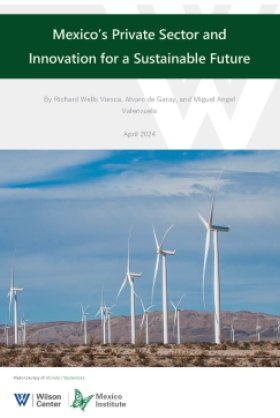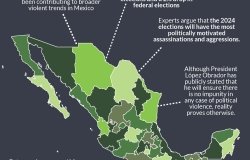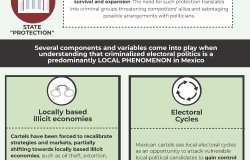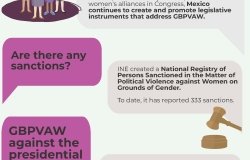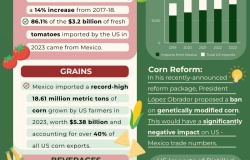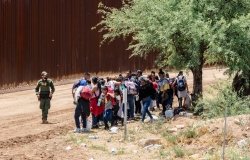Mexico Institute in the News: Mexico's elections: Back to the future?
Joining Inside Story Americas to discuss this are guests: Christopher Wilson, a program associate at the Mexico Institute of the Woodrow Wilson Center; Mark Weisbrot, the co-director of the Center for Economic and Policy Research; and Camilo Perez Bustillo, a Human Rights research professor in Mexico City.
Al Jazeera, 6/30/2012
It is a brutal, bloody battle, that has left more than 50,000 dead, but Mexico's presidential candidates have only made vague promises about the drug war. Why has the economy so roundly trumped security as an election issue?
The campaigning is over and on Sunday, the people of Mexico will choose their next president. It looks like a victory for Enrique Pena Nieto, the Institutional Revolutionary Party's candidate.
This would also mean a return to power for the Institutional Revolutionary Party (PRI), Mexico's political powerhouse that became synonymous with corruption and vote-rigging until it lost its seven-decade grip on power in 2000.
Pena Nieto's nearest challenger, the leftist Andres Manuel Lopez Obrador, has closed the gap in recent months thanks, in part, to support from students' groups. But it does not appear to be enough to steer one of Latin America's most conservative voting countries in a different direction.
It is even more bleak for the ruling party's candidate, Josefina Vazquez-Mota, who lags in third place. That is probably a reflection of the discontent with the chequered economic record of Felipe Calderon, the current president.
Mexico's economy has been the number one topic in the campaign. But all three candidates have been vague when it comes to another of Mexico's top issues: drug-related violence, which has killed more than 50,000 people since 2006.
To see the segment click here.
Related Program

Mexico Institute
The Mexico Institute seeks to improve understanding, communication, and cooperation between Mexico and the United States by promoting original research, encouraging public discussion, and proposing policy options for enhancing the bilateral relationship. A binational Advisory Board, chaired by Luis Téllez and Earl Anthony Wayne, oversees the work of the Mexico Institute. Read more
